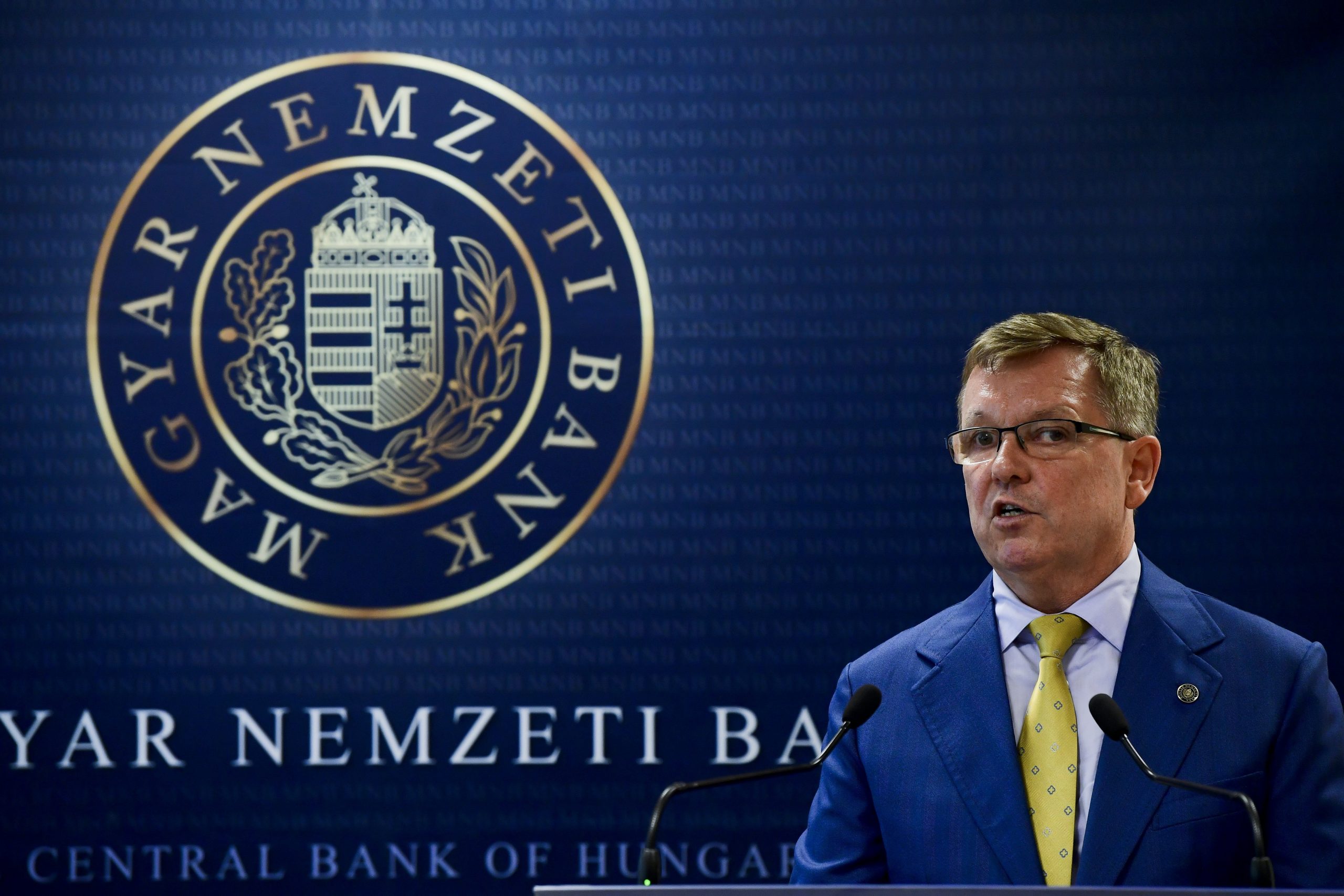
"This is not just about 2022, but about the entire decade," György Matolcsy said, referring to next year's general election.Continue reading

A new global economic crisis is increasingly likely and the government should start formulating a vision for catching up with the more prosperous EU member states over the coming decade, National Bank of Hungary (NBH) governor György Matolcsy said on Monday.
In an article in the online edition of the daily Magyar Nemzet, Matolcsy urged major institutional changes in the structure and operations of the government with a view to preventing Hungary from getting stuck in a “middle-income trap”.
In spite of the economic achievements seen between 2010 and 2019, Hungary’s level of development at the end of 2019 still fell short of the historical high of 1936 when the country’s level of prosperity was closest to that of Western Europe and the average of what is now the European Union, Matolcsy wrote. While Hungary’s level of development in 1936 had been at around 83 percent of the “EU” average, in 2019 it was at 73 percent, he said.
Matolcsy attributed this mainly to shortcomings in the operations of the state and specifically that of the government.
Our mediocre economic performance compared with that of our competitors this past decade was the result of a mediocre performance of government”
Matolcsy highlighted 12 lessons to be learned from the previous decade and the management of the current economic crisis.
He praised the operations of the economy ministry between 2010 and 2013, saying it had been effective in reorganising the state budget and boosting employment. However, he said it was a mistake to shut down the ministry as the centre of the country’s economic policy making and assign that area to the new finance ministry.
“This broke with the civic political wing’s leading principle that economic policy cannot be guided by annual budget interests,” he wrote. “This is akin to the nationally-minded wing giving up the idea of the nation, Christianity or the family on the political stage.”
Matolcsy said this change had created an “economic policy vacuum” which the prime minister and, institutionally, an economic general council had attempted to fill.
“This attempt has failed,” he wrote. “The National Bank of Hungary was unable to fill the economic policy void from the outside, and there was no institution within the government that was authorised or able to do so on the inside, either.”
Though 2018 marked the start of a new government cycle, the government still had no single economic policy centre, leaving the finance ministry to act as one, Matolcsy wrote. He hailed the establishment of the innovation and technology ministry, adding, however, that its functions were too broad and it had not and could not become the centre of economic policy either.
Matolcsy said the NBH and Hungary’s financial system had been successful in managing the economic crisis caused by the pandemic. The foreign ministry “has functioned excellently” in its handling of foreign capital inflows, and the innovation and technology ministry has done a good job creating the conditions for Hungary’s path for growth, he said, adding, however, that a central government “brain” responsible for economic policy analysis was still needed. This was why, he said, Hungary’s crisis management had so far only achieved “mixed results”.
Featured photo by Zsolt Czeglédi/MTI